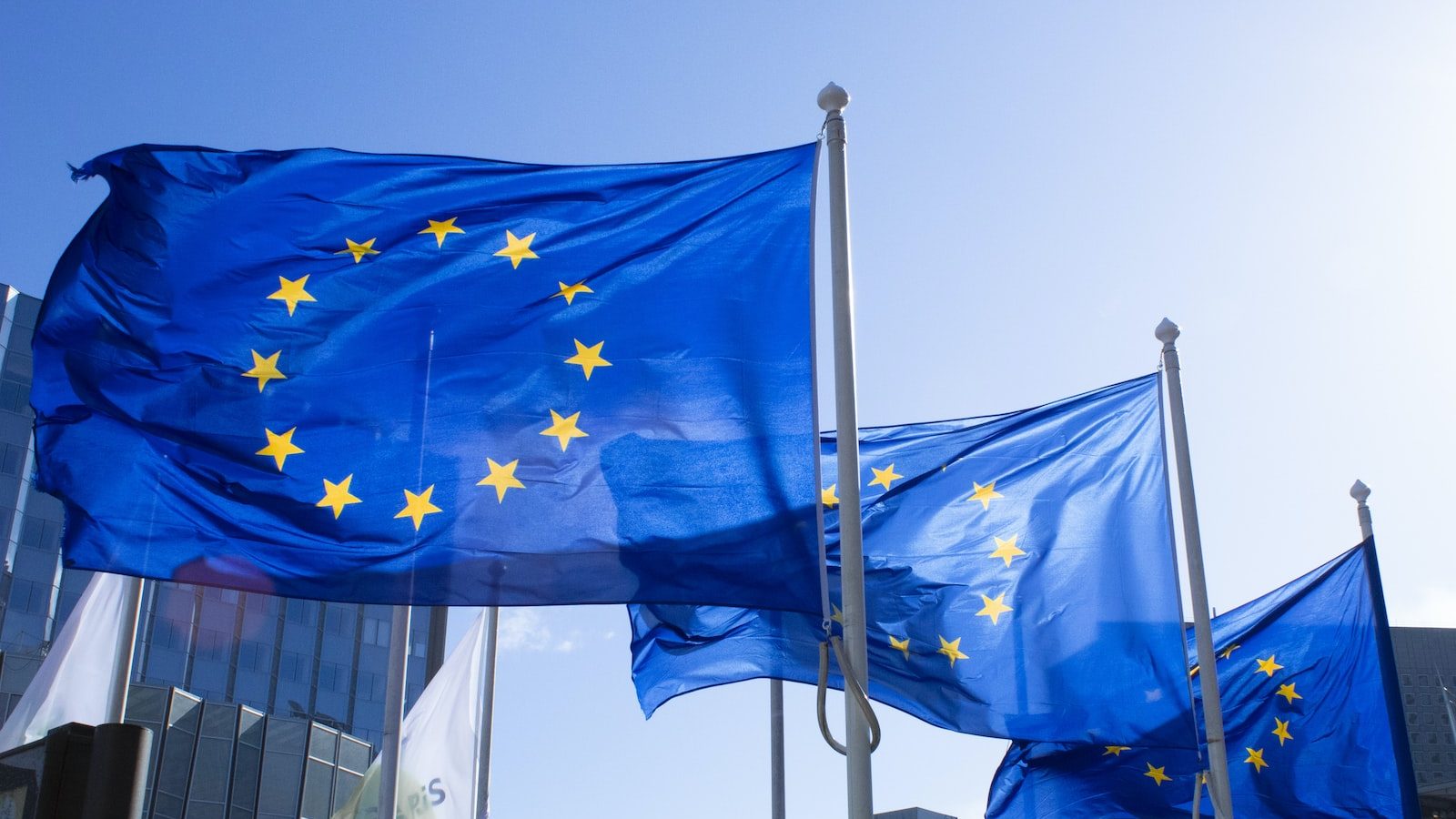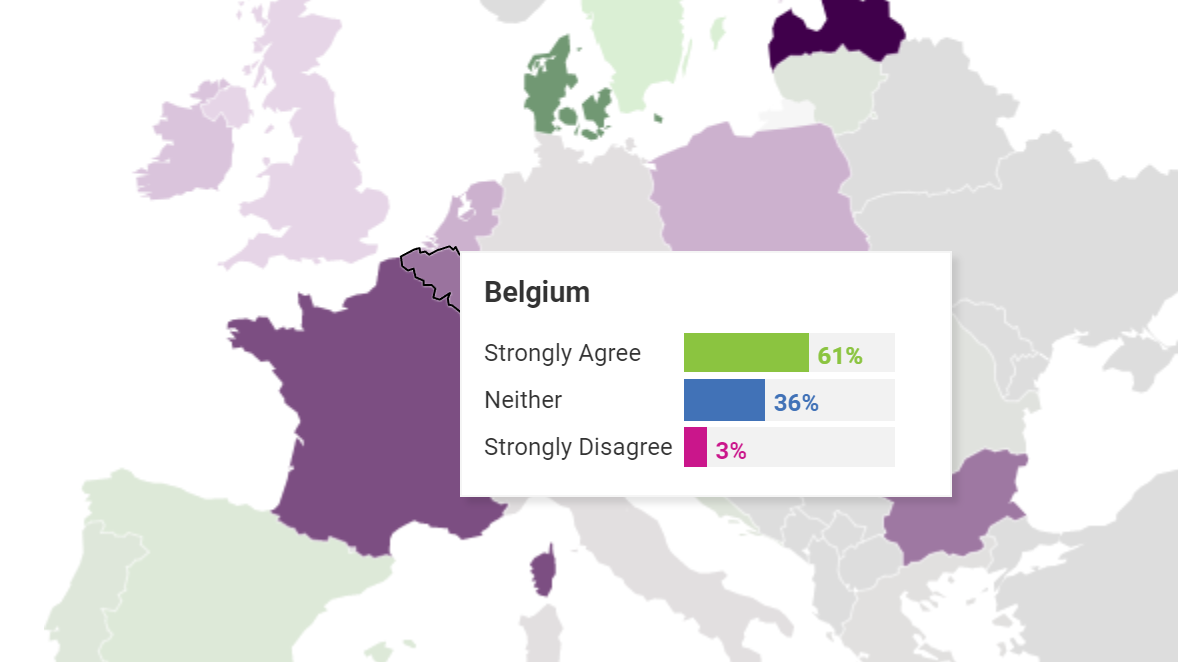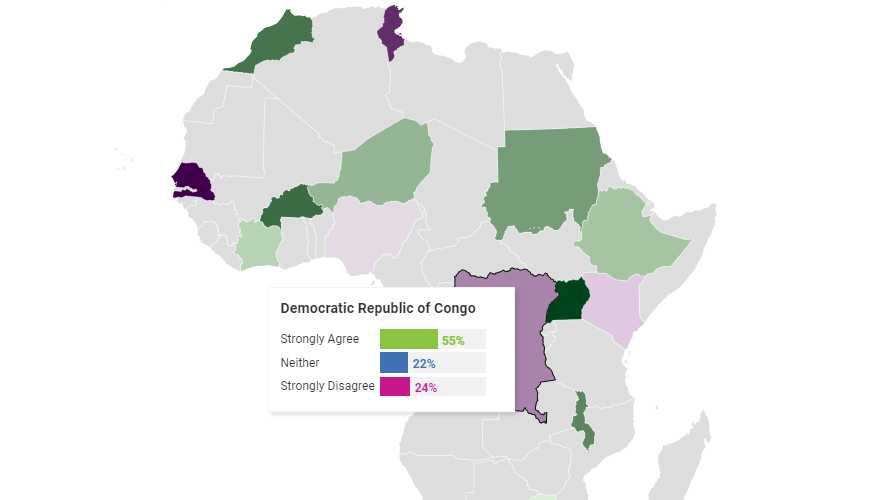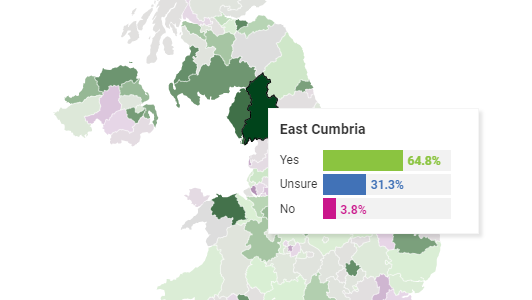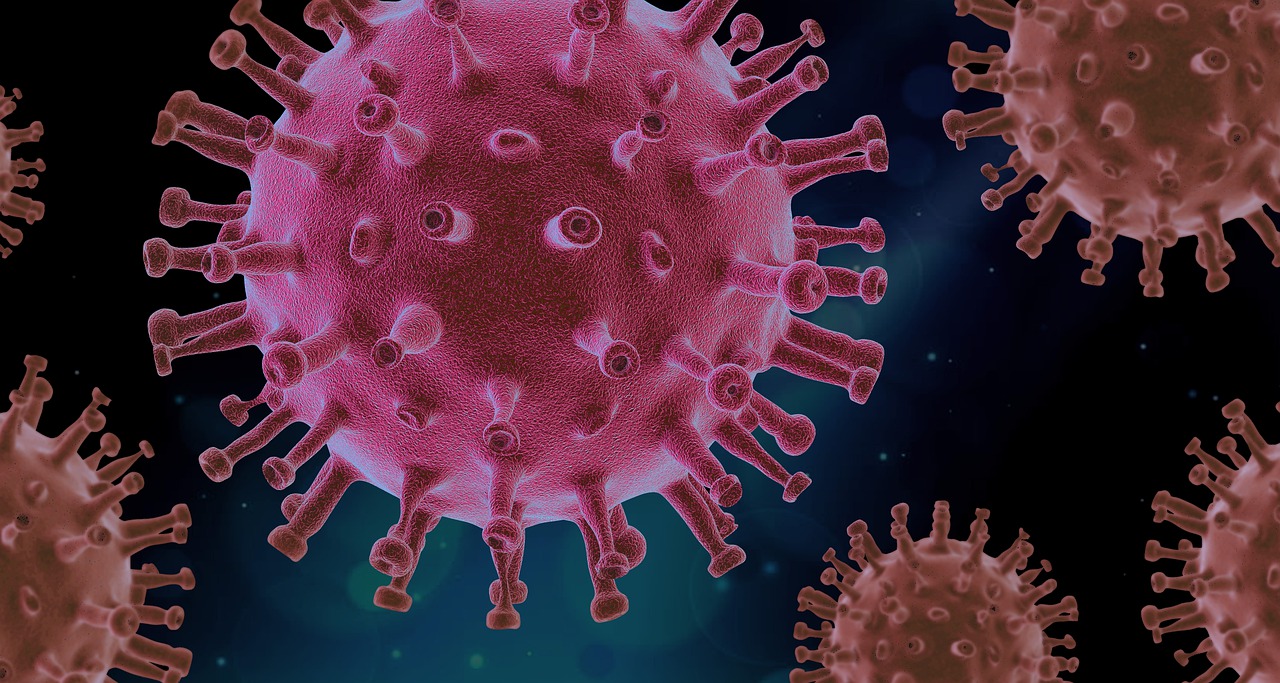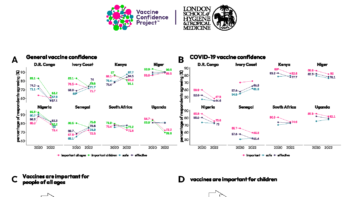Vaccination in Nigeria
Over the past 20 years, Nigeria has increased the number of children who are reached by life saving childhood vaccines. However, progress is fragile and has not benefited all of Nigeria’s children. Nigeria has more zero-dose children—defined as not having received the first dose of diphtheria-tetanus-pertussis (DTP) containing vaccine—than any other country in Africa, and among the most worldwide. Each year nearly 2.5 million children do not receive DTP1,5 and in 2020, an additional 500,000 children were unvaccinated as a result of the COVID-19 pandemic. Nigeria is also a high risk geography for polio.
The reasons why these children are not vaccinated are complex and comprise both issues of access (e.g. low vaccine availability at scheduled times, healthcare worker shortages, and lack of vaccine storage facilities) – and confidence (e.g. low trust in the government and politicians, exposure to vaccine related misinformation, and low threat perceptions of vaccine preventable diseases in comparison to other risks).
These confidence issues have worsened over time and were exacerbated by the COVID-19 pandemic, which saw denialism, lax social distancing, and rumour-driven vaccine anxieties. Trust building is crucial to tackling these challenges and improving uptake.

Vaccine confidence
Agree (%)
Demographic
Focus Areas
General Vaccine Confidence
Nigeria was one of the five countries included in the VCP’s first survey mapping confidence in vaccines and immunisation programmes in 2015. It was also included in a 2015 67-country survey, summarised in a report ‘The State of Vaccine Confidence 2016.’
Five years on, the VCP conducted a large-scale retrospective data-driven analysis to examine global trends in vaccine confidence between 2015 and 2019.
Key findings
- In 2015, Nigeria reported the second highest percentage (22.7%) of vaccine refusers among those who reported hesitancy. This could potentially be a lasting effect of the 2003 polio vaccination boycott in five northern states, which seeded a resurgence of polio in Nigeria as well as outbreaks across three continents (as visualised below) and cost over $500 million.
- The results showed that even small groups of hesitant or refusing individuals can severely undermine an immunisation programme in certain circumstances and have both national and international repercussions.
- Nigeria was also one of six countries where we found significant increases in respondents strongly disagreeing that vaccines are safe between 2015 and 2019.
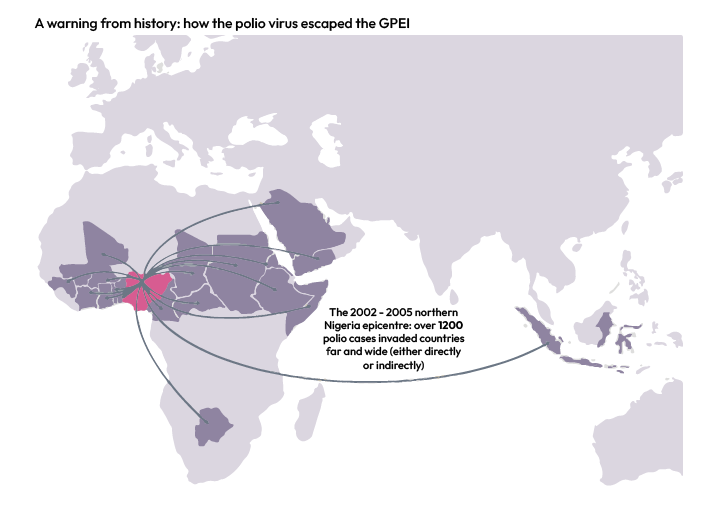
COVID-19
The Vaccine Confidence Project at the London School of Hygiene & Tropical Medicine, in partnership with Premise, developed ASSURE – Assessing Signals and Supporting Resilience. ASSURE is a health system risk monitoring and evaluation system. The system uses digital and statistical tools to forecast uptake rates of COVID-19 vaccines.
With technical support from the Africa CDC and Africa Union, the ASSURE system was fielded in Nigeria to explore how intent to receive a COVID-19 vaccine evolved both nationally and sub-nationally between March 2021 (when the first COVID-19 vaccines were administered to healthcare workers ) and October 2021.
We have also worked with Africa Centres for Disease Control and Prevention (Africa CDC), Johnson & Johnson, the Bill & Melinda Gates Foundation, and Mercy Corps to co-convene a Vaccine Confidence Working Group, with the aim of conducting research to understand the underlying causes of general and COVID-19 related vaccine hesitancy in a range of different countries across the African continent. The Working Group conducted two waves of quantitative research over 2022 – one in January 2022, and one in August 2022 – with both waves including Nigeria. This followed an initial round of research in June 2020 prior to the COVID-19 vaccine rollout.
Key findings
ASSURE
- At a national level, our data suggested that Nigeria has high levels of uncertainty over intent to accept a COVID-19 vaccine, but with fairly stable intentions over time.
- In our final survey (November 2021) we estimated that 77% of Nigerians would either ‘definitely’ vaccinate or were unsure but leaning towards vaccinating. In total, only 3% of the population had received a COVID-19 vaccine as of November 2021, 48% stated a firm intent to vaccinate, 39% were unsure (with 26% unsure but leaning towards vaccinating), while only 11% would ‘definitely not’ vaccinate.
- These national-level trends were reasonably stable over time, seemingly contrasting with the broad global picture for western countries, who have generally experienced increases in intent to accept a COVID-19 vaccine over time.
- At the state-level, we found strong regional variation in levels of intent to accept a COVID-19 vaccine. Perceptions were notably high in Kwara and Niger, as well as Kaduna, where vaccine perceptions had experienced a strong increase over time. Perceptions were relatively much lower in the Federal Capital Territory and Rivers.
Africa Centres for Disease Control and Prevention Working Group
- Between June 2020 and August 2022, we observed a steady decline in two Vaccine Confidence Index (VCI) items – perceptions of the importance of vaccines in general, and perceptions of the compatibility of vaccines in general with beliefs.
- Analysing the index by demographics revealed that the middle age category of 35-44 has the highest support across all index items (vaccine safety, effectiveness, importance and compatibility with beliefs) for both vaccines in general and COVID-19 vaccines specifically. The oldest and youngest in society tend to score the lowest.
- Those who scored higher on the index* were more likely to agree that COVID-19 and the pandemic is not exaggerated and that the government handled the pandemic well – they are also more likely to be compliant with protective and preventative measures against COVID-19.
- There were some variations by gender and vaccine. Men were more likely than women to agree with all index items related to vaccines in general, but women over 35 were most likely to agree with all index items related to COVID-19 specifically, relative to men over 35, men under 35, and women under 35.
- Women under 35 were the least likely to agree with all index items related to vaccines in general and COVID-19 vaccines specifically. This is particularly concerning given the likelihood of these women being mothers, and therefore responsible for the vaccination of children.
- The top three reasons for vaccine refusal were:
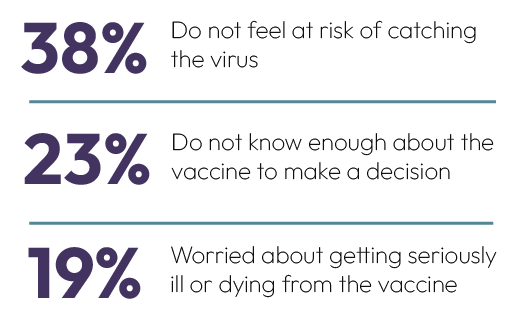
- This was consistent with the findings from the first wave of 2022 data collection in January. Across the two research waves, the personal threat from COVID-19 was perceived as greater than all other health risks except Malaria – but lower than risks to livelihood such as unemployment, inflation, lack of access to food and lack of access to clean water. This goes some way to helping us understand the decline in perceptions of the importance of vaccines.
- In August 2022, the World Health Organization (WHO), family and friends and religious leaders were identified as the most popular sources for information on COVID-19 vaccines; when asked about who to turn to when seeking information on their general health, respondents cited most frequently family doctor or healthcare provider (69%), family members (38%%) and International health authorities (31%).
- Between January – August 22, there was an 18% increase in people reporting exposure to mis/disinformation on the internet, making it one of the top spreader platforms along social media, and family or friends. The study population was also 8% more likely to report seeing mis/disinformation on TV in August-22 than the study population surveyed in January-22.
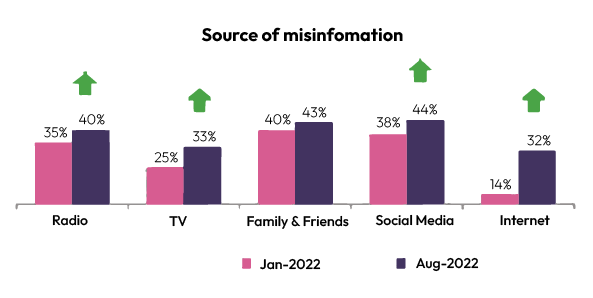
- In August 2022, the most common misinformation story seen and believed to be true related to scepticism around the government supporting a new vaccine to further its own interests. This is mostly believed by those aged 55+ and those who scored hesitant on the VCI Index (71%). Stories that COVID-19 is linked to 5G and that vaccines developed before the Omicron variant are not effective, are the least likely to be believed to be true and to have been heard of.
*Respondents are scored as ‘confident’ if they agree to the three statements on safety, effectiveness and importance. Respondents are defined as ‘hesitant’ if they disagree with at least one statement on safety, effectiveness and importance.
